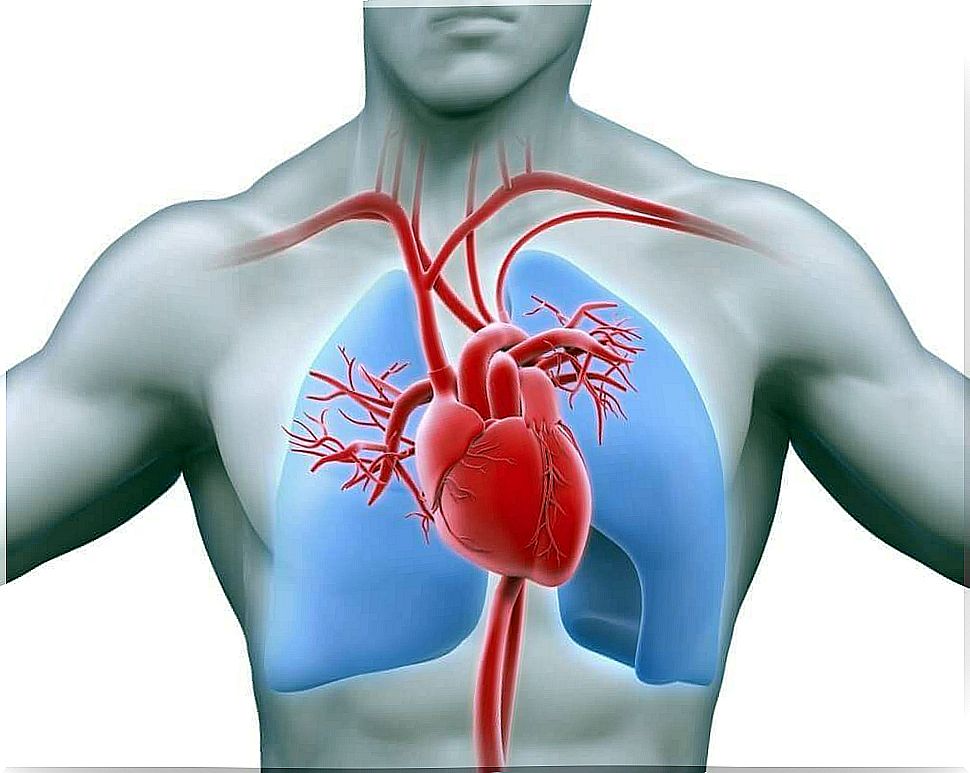Heart Murmur: Symptoms, Causes And Diagnosis
A heart murmur is called a characteristic sound of the blood as it passes through the heart, as a consequence of an abnormal closure of any of the valves that divide the heart chambers.
The human heart is divided into four compartments. It has two atria (upper part) and two ventricles (lower part). Likewise, we can divide the heart into two sections: left and right.
First, blood reaches each atrium via a vein and passes through a series of valves to reach the ventricles. In the case of the right side it is the tricuspid valve while in the left section we find the mitral valve. Once the blood reaches the ventricles, it is propelled through the arteries to different areas of the body.
When there is a problem in the opening and closing of the valves, it is possible that the blood as it passes through the heart produces an abnormal and uncoordinated sound. It is also possible that it is produced by other alterations. For example, the movement of the bloodstream in vessels near the heart.
Let’s see more below.
Symptoms of a heart murmur

Usually the patient has an “innocent murmur” or asymptomatic. However, in some cases it may present a series of alterations or signs that may be associated with this disease. The most frequent symptoms are:
- Having a feeling of abnormal weakness, tiredness, or fatigue. The patient may also have breathing difficulties or a feeling of shortness of breath with minimal exertion.
- Dizziness or brief loss of consciousness (fainting).
- Occasional chest pain or discomfort.
- Present excessive sweating in normal and resting conditions.
- Loss of appetite However, it is possible for the patient to gain weight in a limited period of time (without intending to).
- Swelling or widening of certain blood vessels, especially in the neck region.
- The skin may appear with a blue hue that stands out in some body regions. For example, on the fingertips and on the lips.
Causes of heart murmur

Depending on its characteristics, we can distinguish between two subtypes of this alteration:
- Congenital. It appears already at the birth of the subject and develops with great frequency during childhood and the first years of adolescence. In most cases it does not produce any alteration. However, it is important to have a series of medical check-ups in case a more serious heart disorder develops.
- Acquired. On the other hand, this disorder can occur spontaneously throughout the life of the patient. Likewise, it is more common to find this subtype in people over fifty years of age.
On the other hand, we can point out some risk factors that increase the probability of developing this disease. For example, the following conditions:
- Heart attack (that has affected the valves of this organ).
- Endocarditis. An infection occurs in the tissue that surrounds and protects the heart. As a general rule, pathogens reach the bloodstream and can damage cardiac structures.
- Rheumatic fever.
- Calcification of the valves.
- Holes in the walls of the heart.
Heart murmur diagnosis

Among the most frequent tests that are carried out to make the diagnosis we can mention:
- Physical evaluation. In it, the corresponding specialists check the symptoms suffered by the patient and review the patient’s medical history. The sounds produced by the heart are also heard to try to prove the existence of the murmur.
- Chest X-rays. An internal image of the lungs, heart, and blood vessels in that area can be obtained.
- Electrocardiogram. For this procedure, a series of probes are placed on the surface of the patient’s body that detect the electrical impulses that cause heart movements.
- Echocardiogram. Through a wave projection an image is obtained that shows the structure of the patient’s heart. Thus, alterations in the valves can be detected, for example, their hardening or calcification.
- Cardiac catheterization.
When to go to the doctor?
If you have any concerns and consider that you are experiencing the aforementioned symptoms, it is best to see your doctor as soon as possible. Avoid taking any type of measures without first consulting with the professional and, in case they give you a diagnosis and give you a treatment, follow all their indications.
Remember, the heart murmur is usually asymptomatic and benign.









